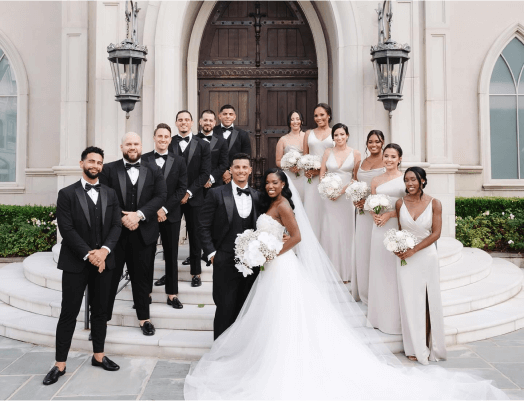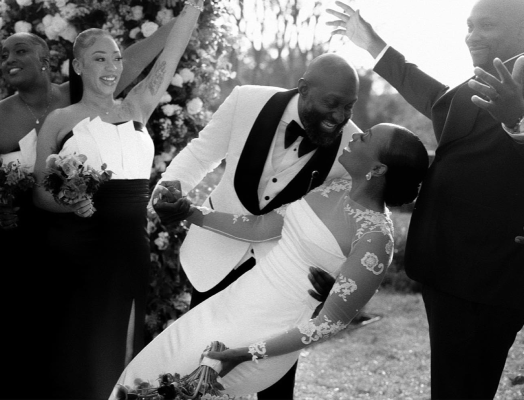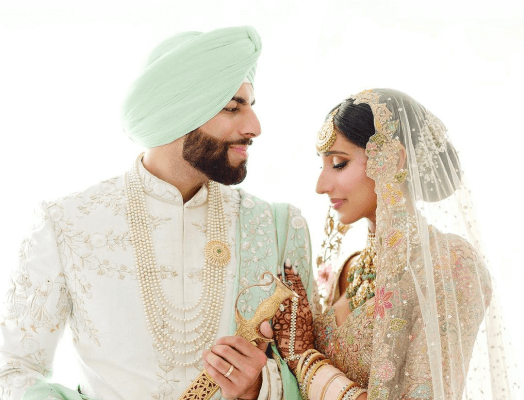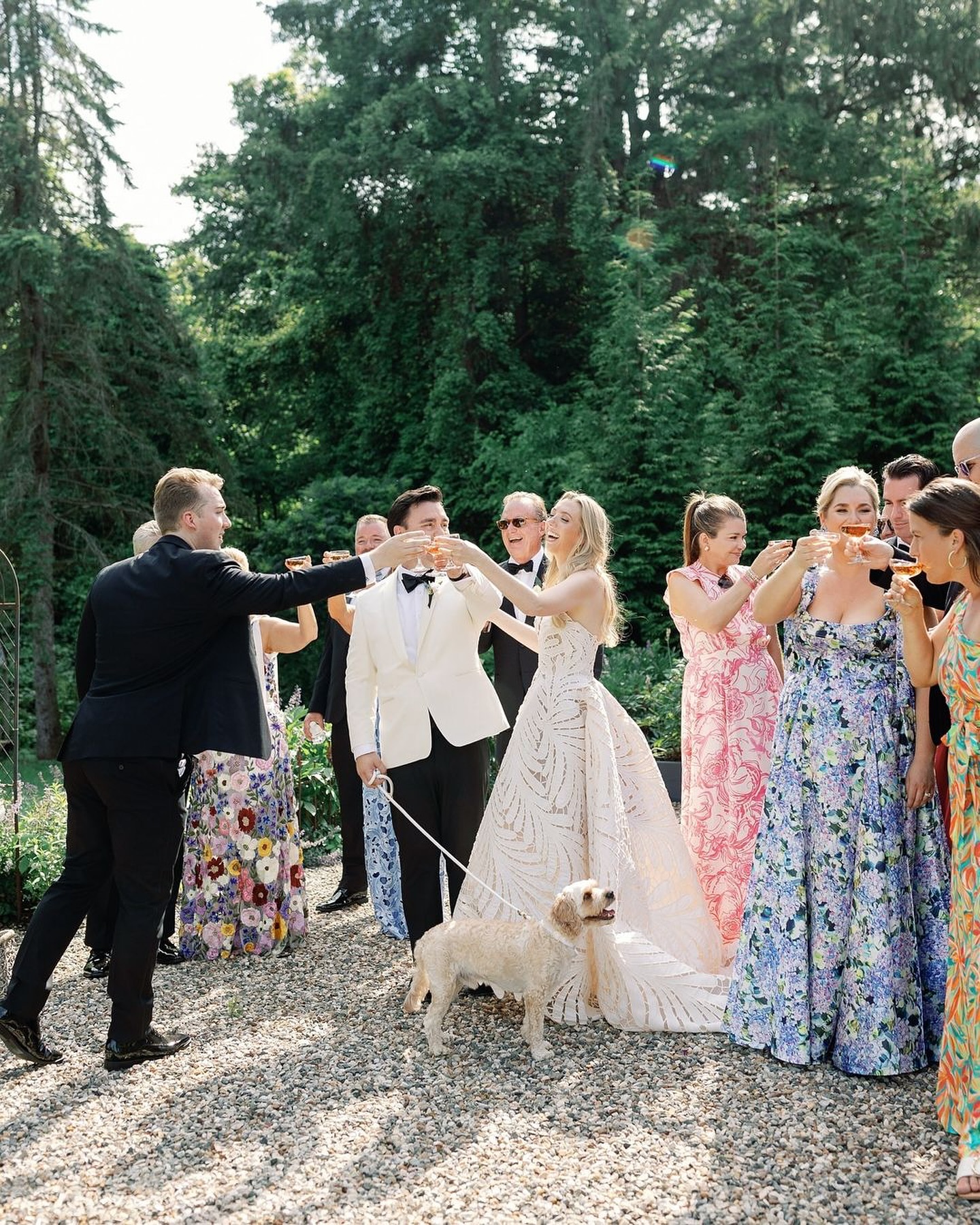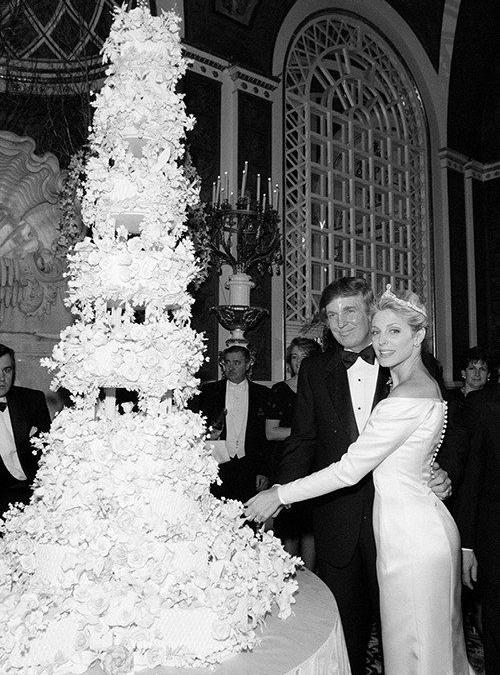The Ultimate Best Man Responsibilities Checklist
- Author: Natali Grace Levine
- Reading time: 8 min 38 sec
- Publication date: 10/26/2024
- Updated: 06/26/2025
Being asked to be the best man at a wedding is an incredible honor—after all, it means the groom trusts you to stand by his side during one of the most important moments of his life. But along with the honor comes a set of best man duties that are crucial to the success of the wedding day. Whether you're preparing for a small, intimate ceremony or an extravagant celebration, the role of the best man is much more than just showing up in a suit and giving a toast. It’s about ensuring everything runs smoothly, being the groom’s go-to support person, and handling a range of responsibilities both before and during the big day.
If you're feeling a little overwhelmed or unsure of exactly what a best man does, don’t worry—you’re not alone. Many of the best men have found themselves wondering where their role begins and ends. Fortunately, this guide is here to walk you through the full spectrum of best man duties—from managing bachelor party plans to helping the groom stay organized and confident on the wedding day.
Find Your Perfect Wedding Vendors
What Is a Best Man in a Wedding?
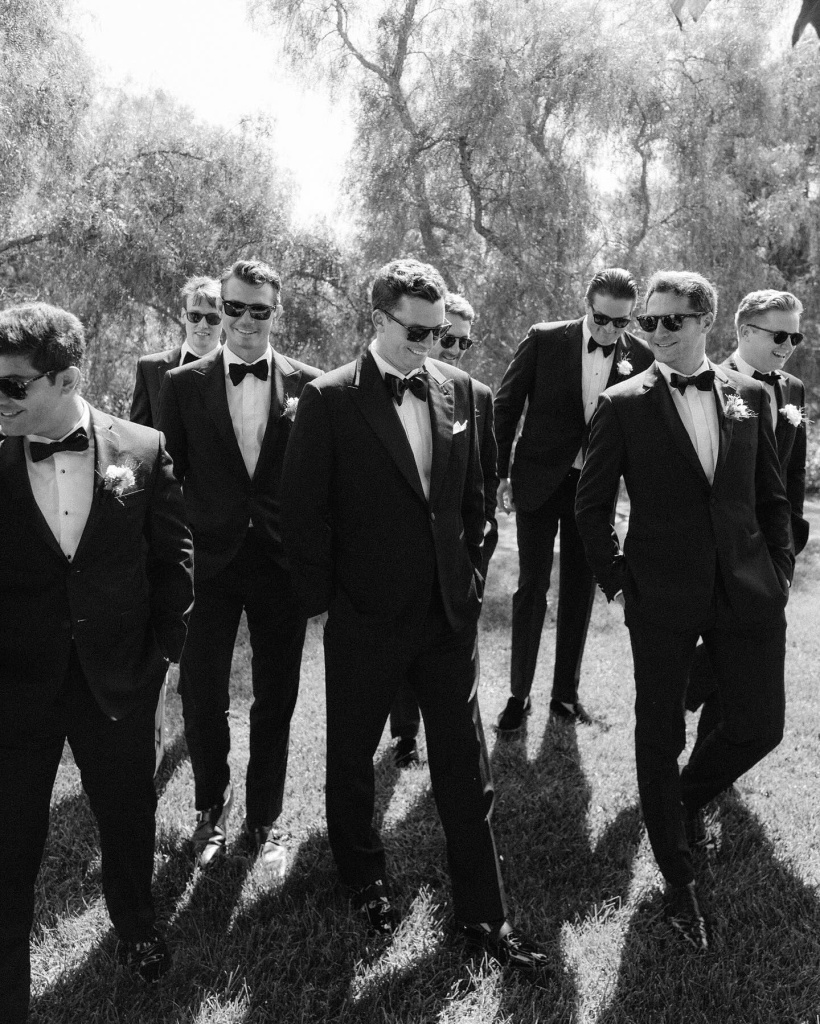
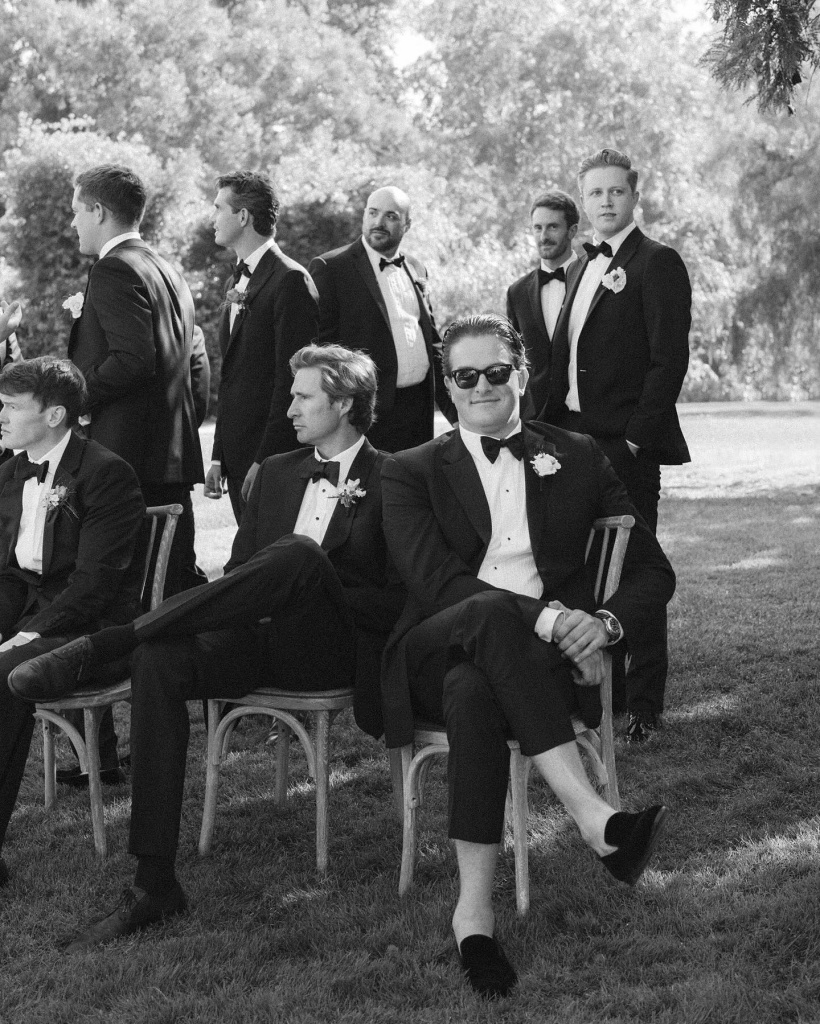
The role of the best man is a position of honor, trust, and responsibility. Traditionally, the best man is the groom’s closest friend or family member, someone the groom counts on for support before and during the wedding. But the significance of this role goes beyond simple companionship; it has deep roots in history that shaped the best man’s duties today.
Historically, the job of the best man originated from early Germanic tribes, where his responsibility was far more serious—and even dangerous. The term "best" didn’t refer to the man’s friendship with the groom but to his combat skills. The best man was chosen for his strength and courage, often tasked with protecting the groom and the bride from anyone who might try to stop the wedding. In some cases, this protection was literal, as rival suitors or family members opposed to the marriage could attempt to intervene. The best man was the groom’s guard, ensuring the marriage proceeded without interruption.
By the Victorian era, the best man’s role evolved into something closer to what we know today. While no longer responsible for physical protection, the best man became the groom’s primary supporter, helping with planning and overseeing key details on the wedding day. His duties expanded to include organizing the groomsmen, safeguarding the wedding rings, and providing the groom with emotional support during the ceremony.
In modern weddings, the best man’s duties are more focused on logistics and support. He is responsible for organizing the bachelor party, ensuring the groomsmen are on task, and helping the groom stay organized and calm. On the wedding day, he plays a crucial role in managing key details, such as holding the rings, assisting with any last-minute issues, and delivering a heartfelt toast at the reception.
Groomsmen vs Best Man: Understanding the Key Differences
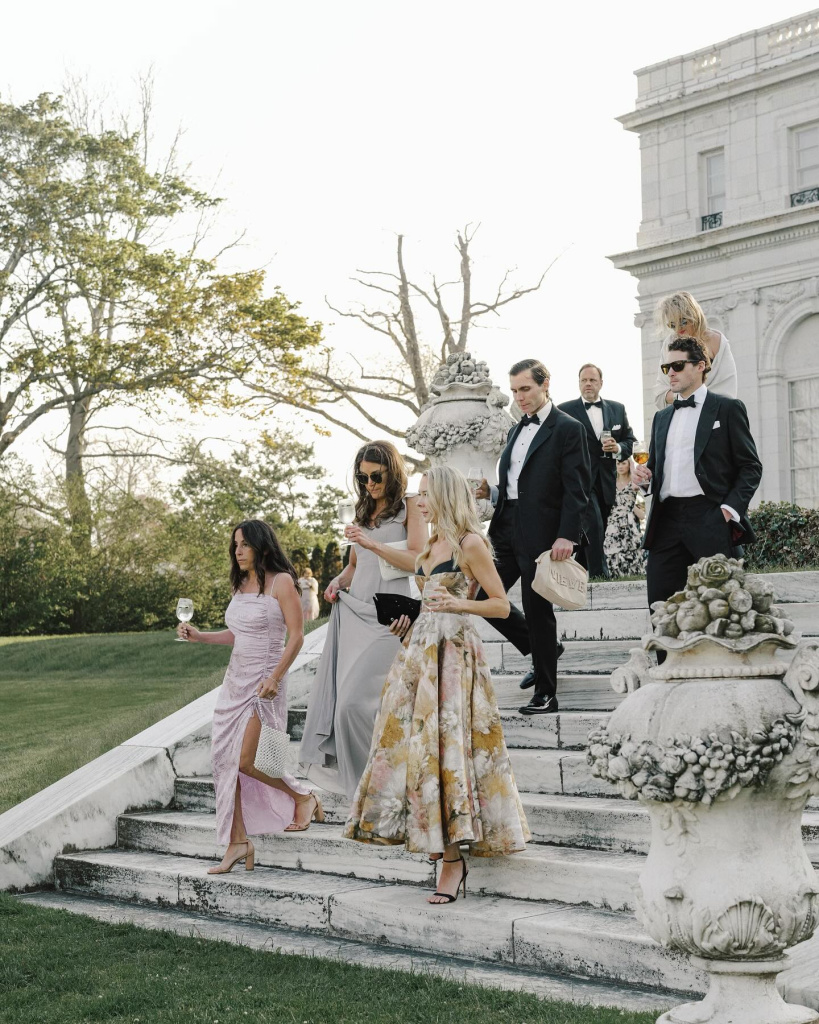
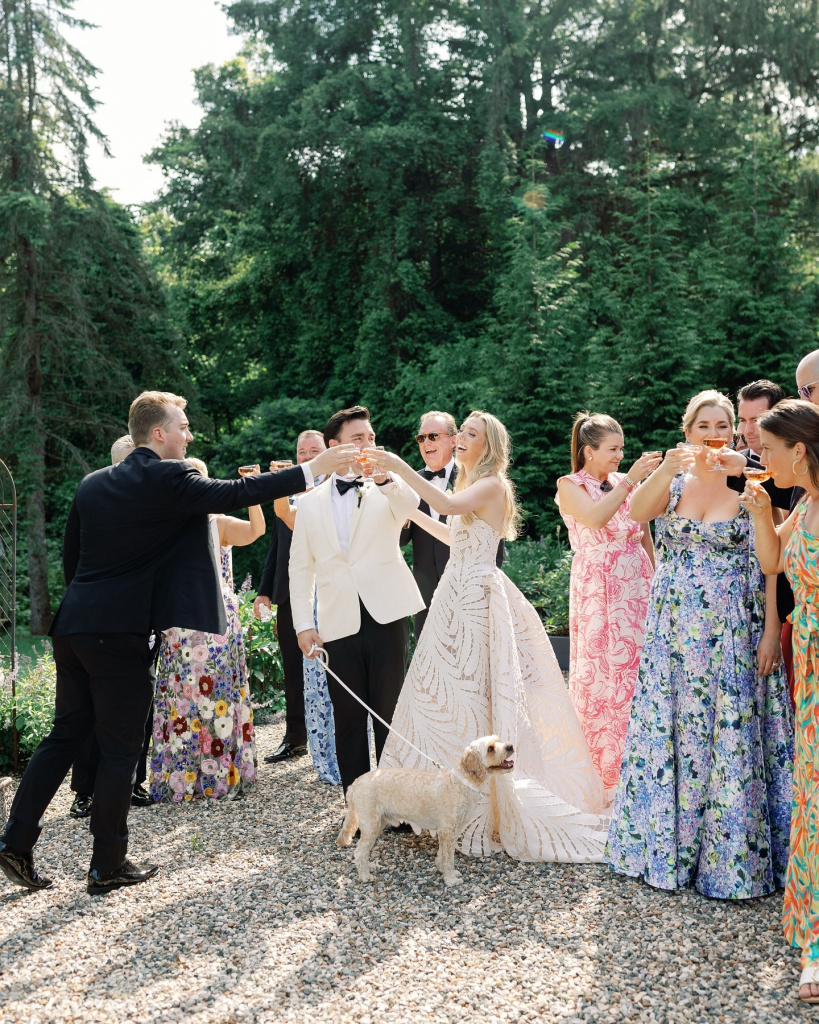
In every wedding, the groom’s side features two distinct roles—best man and groomsmen. While both are important, each carries different responsibilities and levels of involvement. Let’s break down the key distinctions between these roles.
The Best Man: The Groom’s Right-Hand Man
The best man is more than just one of the groomsmen; he is the groom’s most trusted ally throughout the wedding planning process. While the groomsmen play supportive roles, the best man takes the lead in helping the groom with critical tasks.
Additionally, the best man typically plays a prominent role during the wedding ceremony. He holds the wedding rings, stands closest to the groom during the vows, and is often asked to sign the marriage license as a witness. He also delivers the most anticipated speech of the night—his toast to the bride and groom at the reception.
Groomsmen: The Groom’s Support Team
Groomsmen, on the other hand, serve as the groom’s support group. While they don’t carry the same weight of responsibilities as the best man, their presence is vital for the groom. Groomsmen are expected to participate in the bachelor party, help with pre-wedding tasks such as getting fitted for suits, and assist with smaller duties on the wedding day, like guiding guests or helping set up the venue.
During the wedding ceremony, groomsmen usually stand by the groom’s side but have fewer direct responsibilities. They are there to offer encouragement, contribute to the overall atmosphere of the celebration, and ensure that the groom feels surrounded by his closest friends or family.
Best Man Responsibilities Checklist: Your Comprehensive Guide
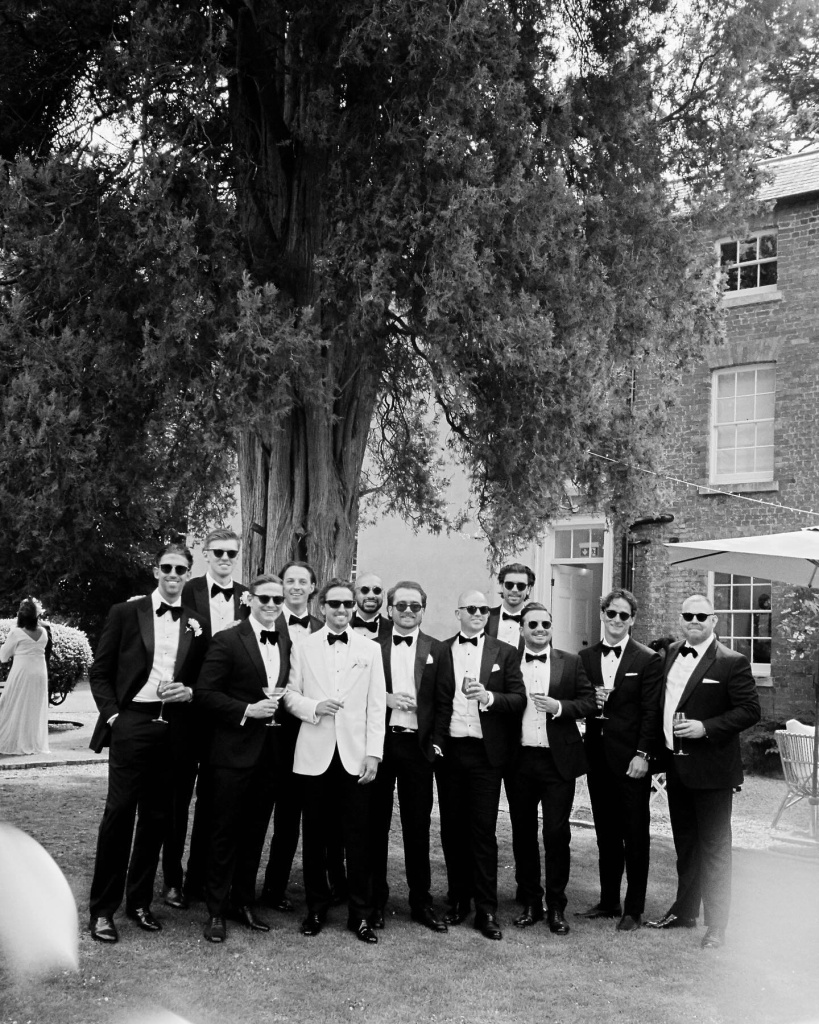
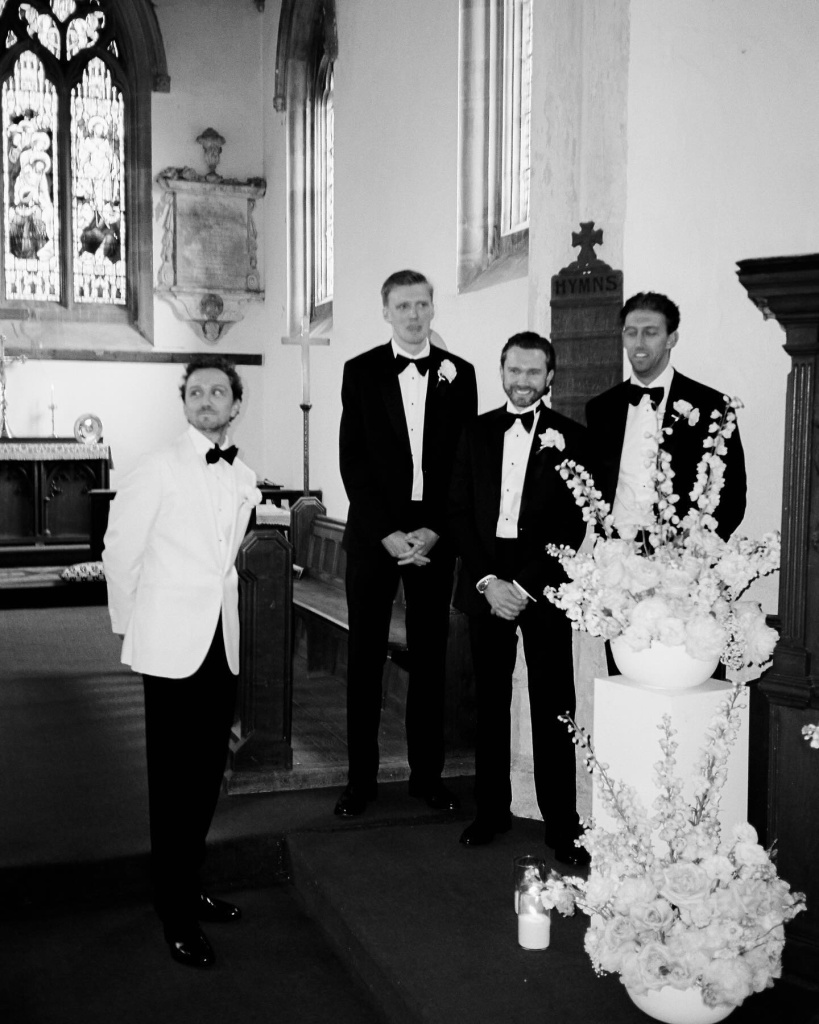
Being the best man comes with a range of responsibilities that extend from the early planning stages to the wedding day itself. Below is a detailed checklist of everything you need to do as the best man to ensure you support the groom and contribute to the wedding’s success.
Pre-Wedding Responsibilities
The responsibilities of a best man begin long before the wedding day. In the months leading up to the event, your role is to provide practical and emotional support to the groom, as well as help coordinate key pre-wedding events. From organizing the bachelor party to keeping the groomsmen in line, your responsibilities during this time are crucial to setting the stage for a smooth wedding day.
- Support the Groom’s Preparations:
- Be available for advice or support regarding the wedding planning process.
- Offer help with selecting the venue, outfits, and managing guest lists if needed.
- Plan the Bachelor Party:
- Discuss preferences with the groom to plan an event that aligns with his interests.
- Organize the guest list, logistics (travel, accommodations), and activities.
- Ensure all groomsmen and key attendees know the plan.
- Manage expenses and collect contributions from participants if necessary.
- Coordinate Groomsmen’s Suit Fittings:
- Ensure all groomsmen are fitted for suits or tuxedos well in advance of the wedding.
- Help coordinate uniformity in attire and accessories, ensuring everyone meets deadlines for fittings or rentals.
- Help with the Rehearsal:
- Attend and participate in the wedding rehearsal, ensuring you understand the flow of the ceremony.
- Assist in organizing the groomsmen, ensuring everyone knows their roles.
- Plan and Attend Pre-Wedding Events:
- Support the groom during pre-wedding events like engagement parties, rehearsal dinners, and other gatherings.
- Help organize and manage any informal events in the lead-up to the wedding.
- Offer Emotional Support:
- Be the groom’s sounding board, offering support during moments of stress or indecision.
- Help the groom manage any pre-wedding nerves, and offer practical solutions for challenges that arise.
- Prepare Your Best Man Speech:
- Write a heartfelt and engaging speech that includes personal anecdotes, thanks, and well-wishes for the couple.
- Rehearse the speech to ensure smooth delivery on the wedding day.
- Help Organize Logistics:
- Assist the groom with last-minute details, such as confirming transportation or accommodations for guests.
- Be prepared to help liaise with vendors if needed (e.g., photographers, florists, caterers).
Wedding Day Responsibilities
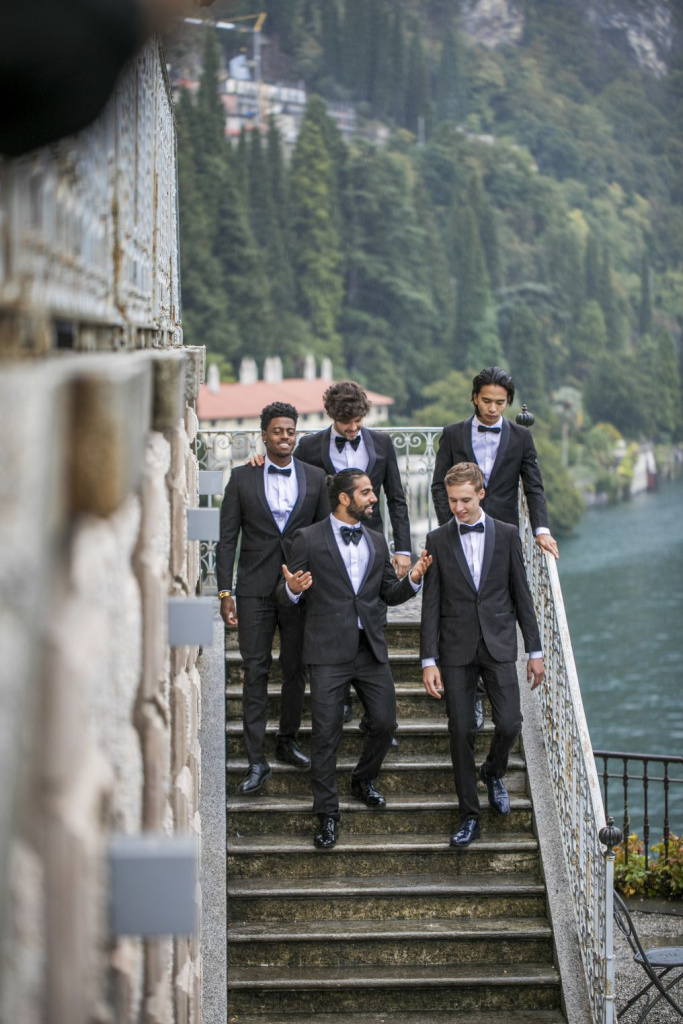
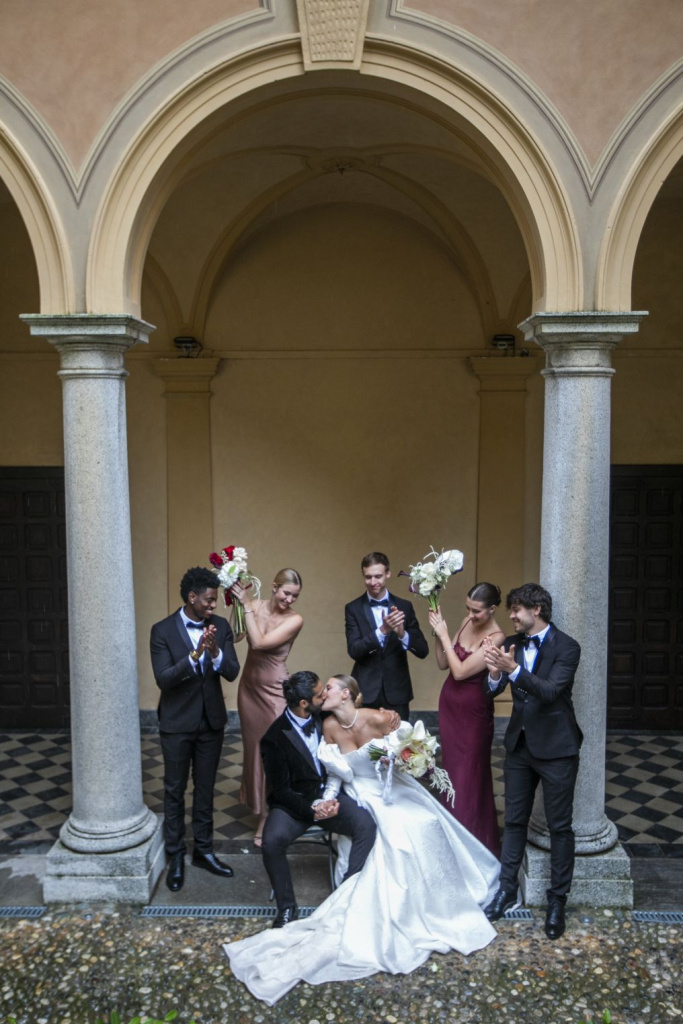
On the big day, your job as the best man is to make sure everything runs smoothly. You are the groom’s primary support system, responsible for helping him get ready, managing the groomsmen, and overseeing key details. Your leadership and attention to detail are critical for making sure the ceremony and reception go off without a hitch.
Keep the Groom Calm and Focused:
- Arrive early on the wedding day to help the groom get dressed and ready.
- Keep a light, positive mood to alleviate any wedding day jitters.
Ensure the Groom is on Schedule:
- Keep track of the day’s timeline, ensuring the groom arrives on time to the ceremony, photoshoots, and other key moments.
Hold the Rings:
- Safeguard the wedding rings until the moment they are exchanged during the ceremony.
- Double-check that you have the rings securely before the ceremony begins.
Help with Groom’s Attire:
- Assist the groom with any final adjustments to his outfit.
- Ensure the groom’s tie, boutonniere, cufflinks, and other accessories are in place.
Lead the Groomsmen:
- Coordinate with the groomsmen to ensure they know their roles during the ceremony and reception.
- Help keep everyone on time and organized, including making sure they arrive at photo sessions, the processional, and the reception as scheduled.
Assist with Guest Management:
- Help direct guests at the ceremony and reception, making sure they are seated properly and know where to go.
- Assist in guiding family members for photographs or to their assigned places.
Deliver the Best Man Speech:
- Deliver your prepared speech during the reception, ideally right after the maid of honor’s speech.
- Keep the speech respectful, heartfelt, and celebratory—avoid embarrassing stories that may not sit well with everyone.
Coordinate Toasts and Other Reception Duties:
- Lead or help organize toasts from other guests if needed.
- Assist the couple with any special reception moments like cutting the cake or first dances.
Handle Emergency Situations:
- Be prepared to resolve any last-minute issues, from forgotten items to vendor hiccups.
- Keep a mini emergency kit (sewing kit, breath mints, pain relievers, etc.) on hand for unexpected situations.
Ensure Vendors Are Paid:
- If previously arranged, help distribute any remaining payments or tips to vendors on behalf of the groom and bride.
- Be a Point of Contact for Vendors:
- Act as the liaison between vendors and the couple if any issues or questions arise on the day of the event.
Manage the Couple’s Belongings:
- Safeguard important items like gifts, cards, and personal belongings.
- Help the couple gather their things when transitioning from the ceremony to the reception or leaving the venue.
Witness and Sign the Marriage License:
- After the ceremony, sign the marriage license as a legal witness if required by the couple.
Post-Wedding Responsibilities
Even after the celebration winds down, your duties as best man aren’t quite over. The post-wedding phase includes helping the couple with final details, managing gifts, and ensuring everything wraps up smoothly. Your job is to make sure the couple leaves the wedding stress-free and ready to enjoy their new life together.
Assist with Post-Reception Details:
- Help the couple collect personal items, gifts, and décor after the reception.
- Ensure that transportation is arranged for the couple or guests as needed.
Manage Gifts and Cards:
- Safeguard and help transport wedding gifts and cards to the appropriate location (e.g., the couple’s home or honeymoon suite).
Support the Couple’s Send-Off:
- Help coordinate the send-off for the couple, ensuring all guests are involved and that transportation is ready.
Coordinate with Vendors for Clean-Up:
- If necessary, help liaise with vendors for clean-up, particularly if the couple needs assistance organizing items after the event.
By following this comprehensive checklist, you’ll not only fulfill your best man duties but also ensure that you’ve helped make the wedding day memorable and stress-free for the couple. Your role as the best man is pivotal in ensuring the celebration goes off without a hitch, and with careful planning, you’ll excel in this important responsibility.
Additional Tips for Being an Outstanding Best Man
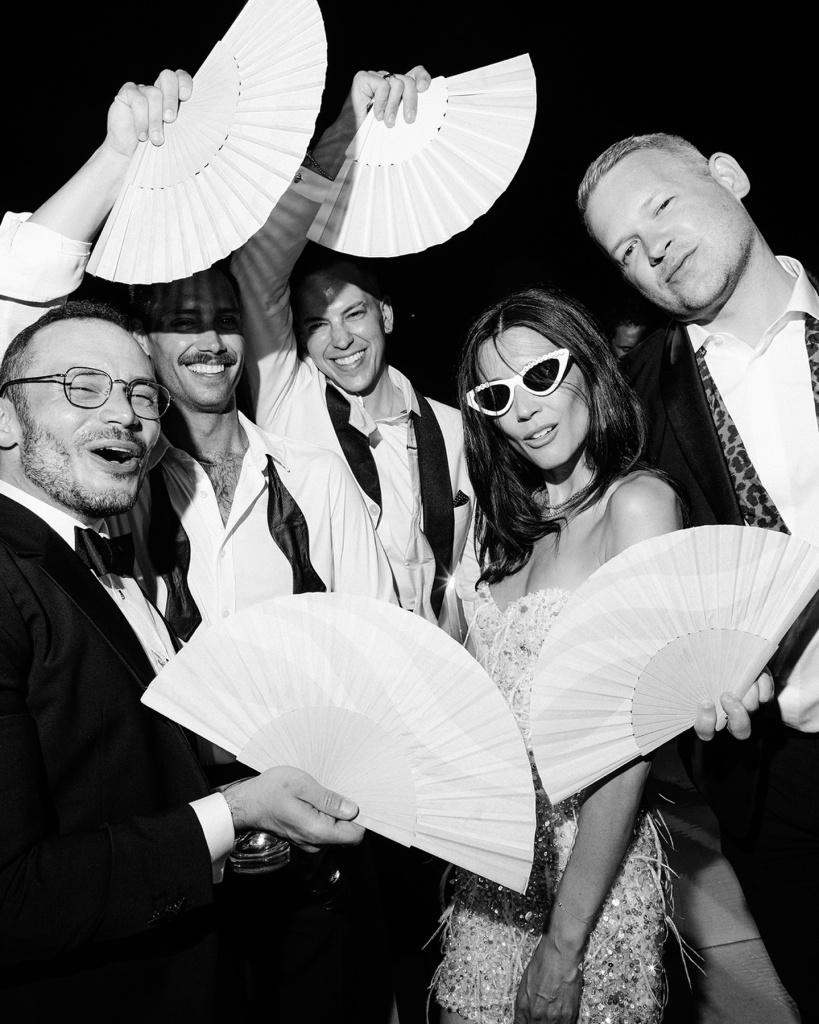
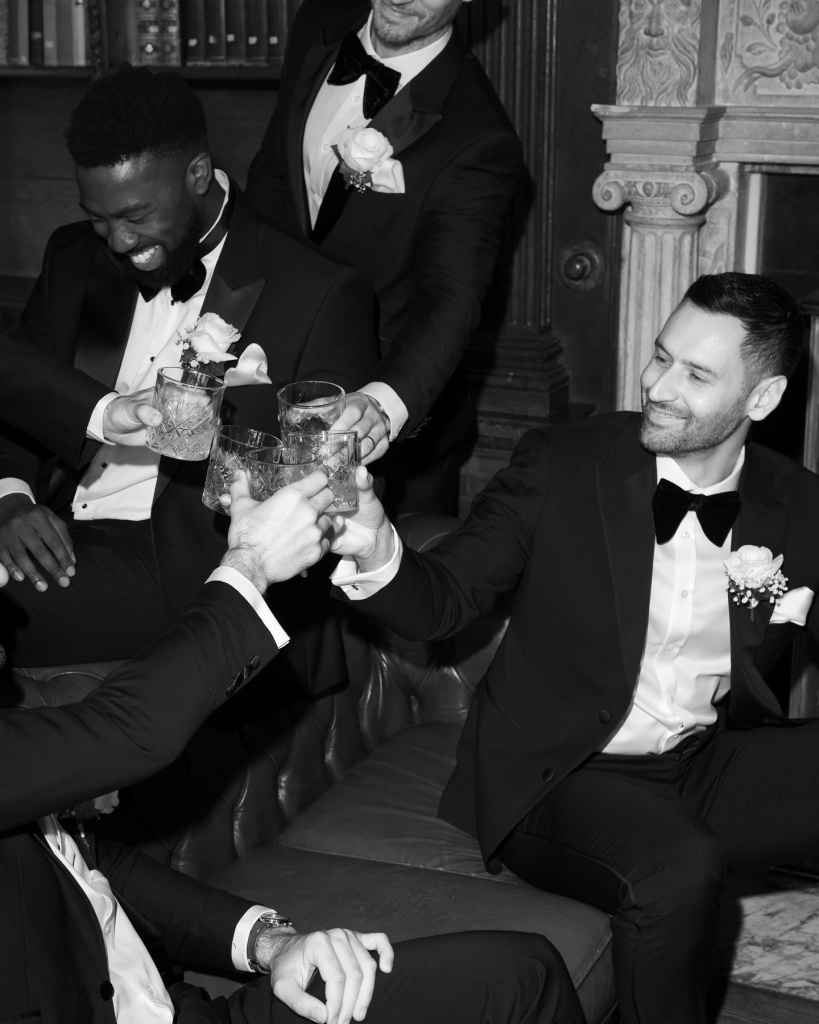
Being a best man is more than just fulfilling a checklist of tasks—it’s about going above and beyond to ensure the groom and the wedding party have an unforgettable experience. To truly excel in your role, here are some additional tips that will help you stand out as an exceptional best man.
Stay Organized and Proactive
The best way to ensure everything runs smoothly is to stay organized. Keep track of important dates, events, and deadlines, such as bachelor party planning, suit fittings, and the wedding day schedule. Anticipate the groom’s needs, and offer your help before he asks. Proactivity shows that you’re fully invested in making his day as stress-free as possible.
Communicate Effectively
A great best man keeps everyone in the loop. Make sure the groomsmen know their roles and stay on schedule. Coordinate with the wedding planner, vendors, and family members to address any potential issues. Strong communication will help prevent any last-minute surprises and ensure everyone is on the same page.
Be Ready to Adapt
No matter how well-planned a wedding is, things can go off-script. As the best man, be ready to think on your feet and adapt to unexpected situations. Whether it’s fixing a wardrobe malfunction, handling a forgotten item, or calming the groom’s nerves, flexibility is key to ensuring the day goes smoothly.
Be a Leader
The groomsmen will look to you for direction. Lead by example—be punctual, stay calm, and keep everyone motivated and on task. By demonstrating strong leadership, you’ll help keep the wedding day running smoothly while also earning the respect and appreciation of the wedding party.
Offer Emotional Support
Weddings can be overwhelming for the groom. As the best man, it’s essential to provide emotional support throughout the day. Whether it’s offering words of encouragement, keeping him laughing, or simply being a calm presence, your support will help keep the groom focused and at ease.
Enjoy the Moment
While you’re handling important duties, don’t forget to enjoy the celebration! Take pride in the fact that you’re playing a significant role in one of the most important days in your friend’s life. Stay present, celebrate with the couple, and enjoy the experience along with them.







